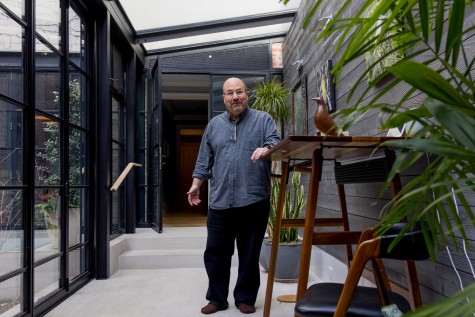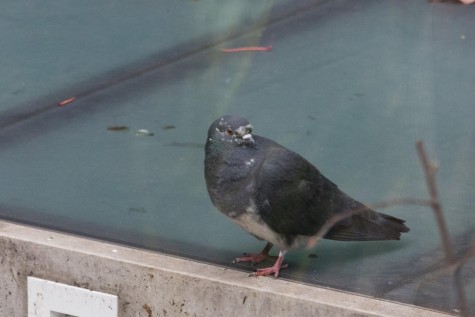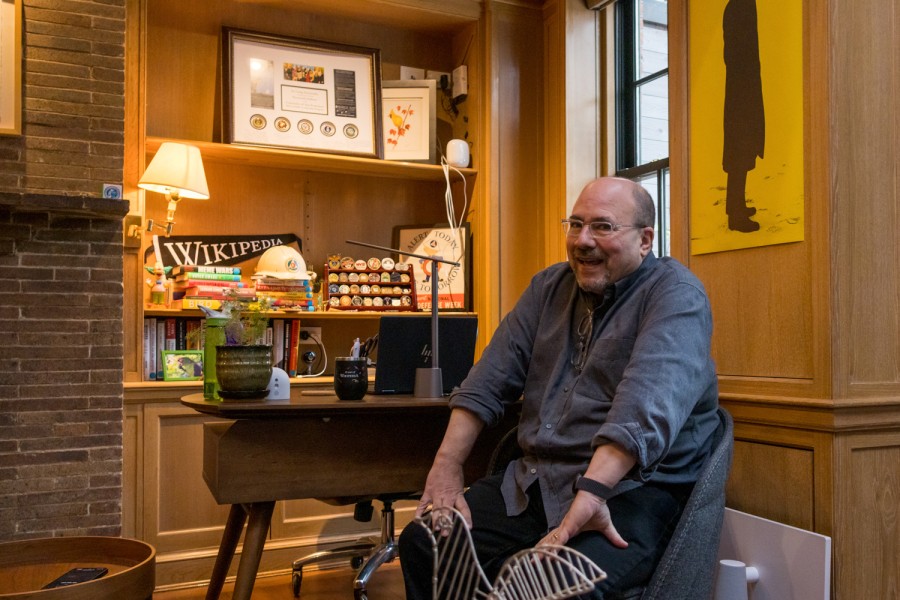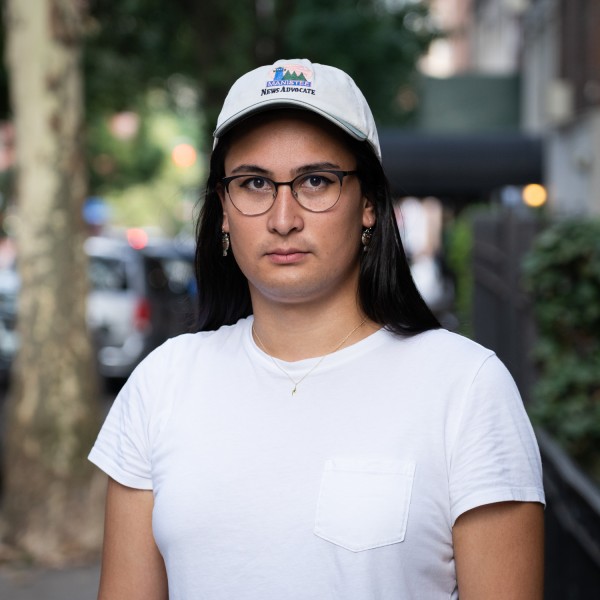Q&A: Craigslist founder talks pigeons and saving democracy
Craigslist founder Craig Newmark sat down with WSN to talk about his philanthropic work in supporting the press.
(Alex Tey for WSN)
December 12, 2022
Craig Newmark is a man of many trades. He’s the founder of Craigslist, a philanthropist and an avid birder. Newmark has a long history with philanthropy and has been supporting journalism since the mid-2000s, donating millions of dollars to organizations including ProPublica, the American Press Institute and the Poynter Institute.
Newmark is no stranger to supporting New York City institutions either. He made a $20 million endowment to the CUNY Graduate School of Journalism in 2018 — which has since been renamed the Craig Newmark Graduate School of Journalism at CUNY. He donated $10 million to Columbia University in 2019 to establish a center for journalism ethics and security, and donated $400,000 to NYU’s Center for Social Media and Politics in 2020.
Newmark sat down with WSN to talk about his history with Craigslist, the importance of funding a trustworthy press and his love for pigeons.
This interview has been edited for length and clarity.
WSN: In an email to all of the nonprofits and organizations you supports on your “craigsnewlist,” you grandly announced you turned 70 the other day. How does it feel?
Newmark: It feels normal, in part because I’ve been desensitizing myself to the number for about six months. And I’ve been asking myself how morbid I’ll allow my sense of humor to be. So far, there has been a certain pushback about referring to this as my sunset or golden years.
WSN: Were you college-aged when you started Craigslist? Where were you in life?
Newmark: I was around 42, pretty much after I left Charles Schwab. This was in ’95. That’s when the dot-com bubble was starting in the Bay Area, San Francisco. I got lucky in that I was approached indirectly by Bank of America, and I wound up helping develop home banking, which I use now. I remember part of my role wound up getting different parties to work together, which is an odd thing to ask me to do. Because if you were to look in the dictionary under social skills, you would not find my picture.

WSN: When you were in college, did you also have an interest in journalism?
Newmark: In high school history, Mr. Shulski made sure we understood the importance of good journalism, as well as things like due process. But it really didn’t hit hard until 2016, when it sank in that we have a problem.
That’s when I started doing, let’s say, more serious philanthropy. The idea is that I’m not a major funder, but I figured I needed to play some role. I’m thinking about the notion of anonymity and philanthropy. People who know effective communications and philanthropy tell me that sometimes you put your name on something, and that legitimizes not only the something but amplifies everything you do. Hence, the name of the CUNY journalism school.
WSN: I read that you are changing your philanthropic model. You have a big focus on giving to journalism. Can you talk about that?
Newmark: I’m not changing it. In my case, it’s a means to give away more money. And the deal is that I’m a stickler for the rules.
I learned in high school history that a trustworthy press is the immune system of democracy, and that means we need ethical and trustworthy press operating. The role I play is to reinforce that. Giving is important because if a bad actor wants to put you out of existence, journalistically speaking, they can mount one or more frivolous lawsuits. That’s what happened to Gawker, and it almost happened to Mother Jones. So pro bono legal support is a big deal.
WSN: CUNY’s journalism school said you made a “transformative” donation. What leads you to make donations like that to other New York journalism schools, including the one at NYU?
Newmark: We need reporters speaking truth to power, and we need people demanding honest answers from politicians. CUNY is of particular interest, because CUNY, for a large number of people, has been the key to getting through life starting with no money into the middle class or even beyond. That’s my own history.

WSN: When did your love of pigeons start?
Newmark: I developed a love for birds in the mid-’80s when I lived in the Detroit area. As for pigeons? Well, they’re the underdog. They’re the grassroots, most prominent bird and possibly our successor species. But pigeons are, well, I identify with them as well. I grew up with no money, living across the street from a junkyard.
WSN: You’re involved with rescuing pigeons. What does that look like?
Newmark: Sometimes they’re sick or injured in a way that they can nurse to health and release. Sometimes they’re injured in ways that, if released into the wild, they’re basically hawk food. There’s a hawk camera on the ledge outside of the NYU president’s office. There was a pair of Red-tailed Hawks, and they would bring back food for their young, and that often consisted of pigeons, or their non-winged colleagues.
WSN: Speaking of democracy, I read that you’ve noted a stanza from Leonard Cohen’s song “Democracy.” What does that song mean to you?
Newmark: It means that our country is under threat, as well as democracies everywhere. And we all got to do something to stand up. In my case, I find people who are really good at part of that, and I’ll help them out with cash and influence, and get out of their way. Sometimes technology notables have a hard time getting out of the way.
In the year 2000, people helped me understand that as a manager [of Craigslist], I suck. It only took me a couple of months or so to realize that for a stubborn male human engineer is not so bad. And so I went into full-time customer service, and I’m a really good customer service rep.
WSN: Is there anything you’d like to communicate to the people at NYU or the student body?
Newmark: I have no real wisdom to impart. But supporting the news is something well — I’m trying to help in very modest ways.
Contact Charles Roth-Douquet at [email protected].
















































































































































